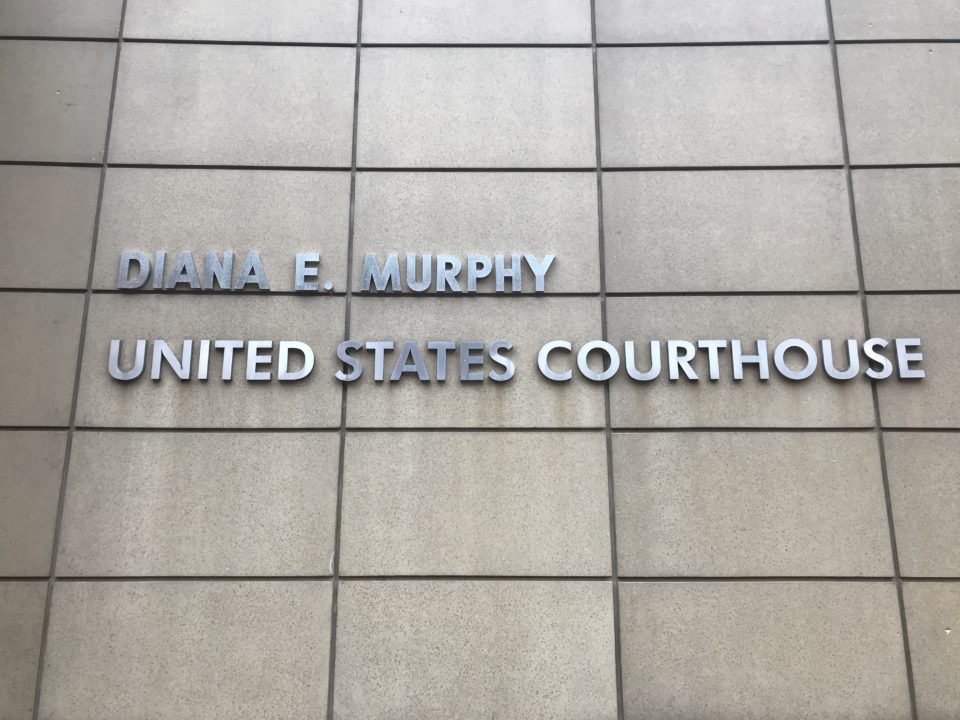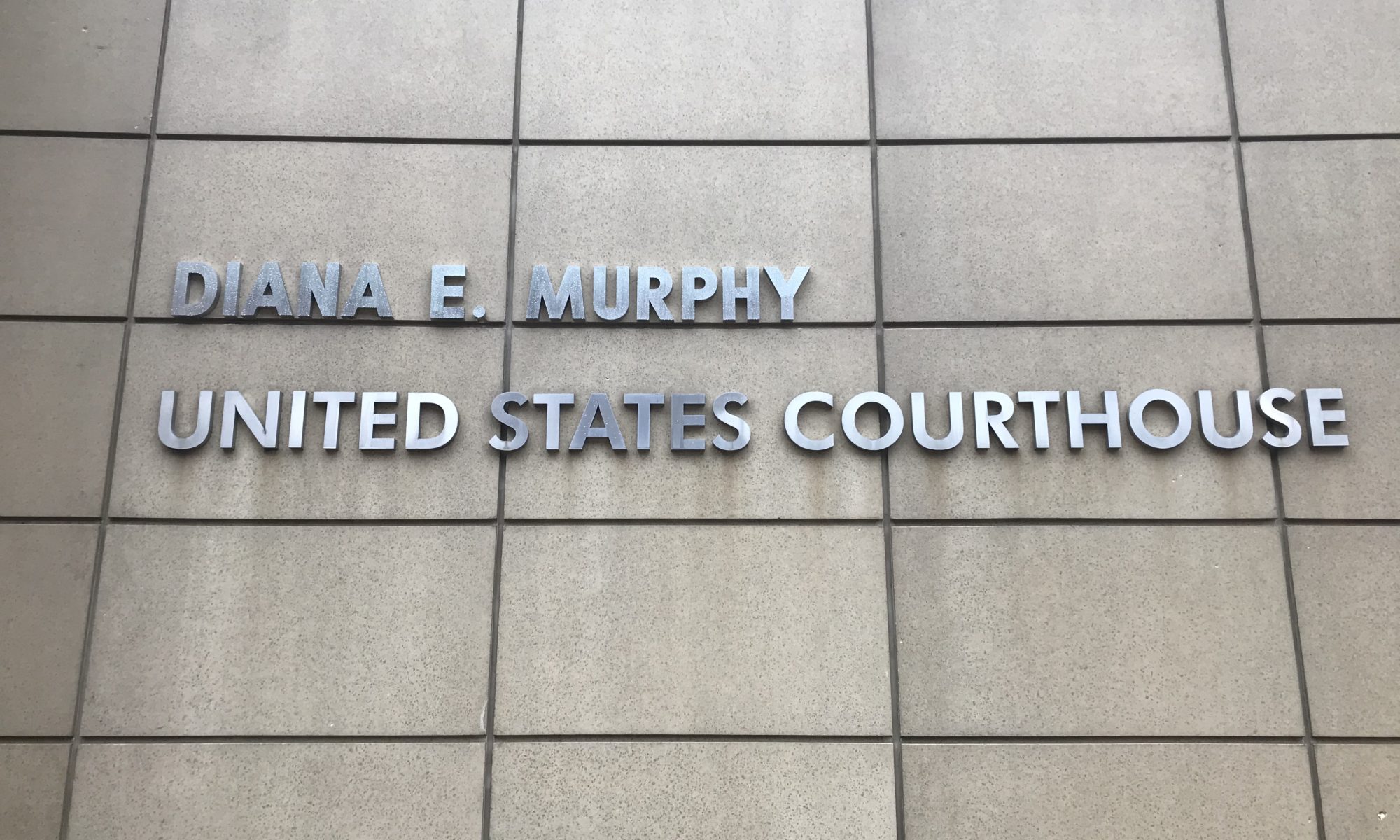
St. Thomas student pleads not guilty to hoax bomb threat charges Monday, Oct. 21 at the federal courthouse in Minneapolis. (Rachel Torralba/TommieMedia)
A St. Thomas student facing multiple charges in connection with three hoax bomb threats at the University of St. Thomas pleaded not guilty Monday at the federal courthouse in Minneapolis.
Ray Persaud, 20, who is no longer in custody, faces a grand jury indictment, accusing him of making phone calls that “maliciously conveyed false information” about alleged bomb threats on April 17, Aug. 20 and Sept. 17.
Persaud’s trial before U.S. District Judge Eric C. Tostrud is scheduled to begin Dec. 16. He has been suspended from St. Thomas since his arrest in late September.
Persaud, identified by St. Thomas as a commuter, was first charged in September with one felony count of “using an instrumentality of interstate commerce to make a threat to kill, injure or intimidate any individual, and to damage or destroy any building, by means of fire and explosive.”
In the past six months, three separate bomb threat incidents occurred at St. Thomas, most recently on Sept. 17. The U.S. Attorney’s Office said the FBI determined Persaud called via Voice Over Internet Protocol through multiple apps that allow the use of multiple phone numbers.
The first threat, called in on April 17 to the campus switchboard, informed officials of a bomb on campus. McNeely Hall was named in a second call that led to an evacuation of the building. A third call named another building, which resulted in officials closing the St. Paul campus.
On Aug. 20, another threat was called into the campus switchboard, targeting John Roach Center. JRC was evacuated and all classes in the building were canceled for the remainder of the day.
The third threat was called in the morning of Sept. 17, five months to the date after the first incident. The campus switchboard received a series of calls, giving different information in each, according to St. Thomas Public Safety Director Dan Meuwissen. The caller stated there were four bombs, naming O’Shaughnessy Science Center, the John Roach Center, the Anderson Student Center and the Facilities Design Center, according to the complaint. The buildings named were temporarily closed and classes resumed that afternoon.
Calls from the third threat were traced to Persaud’s home address, according to the U.S. Attorney’s Office.
Rachel Torralba, Samantha HoangLong, Noah Hanlon and Althea Larson contributed to this report.

